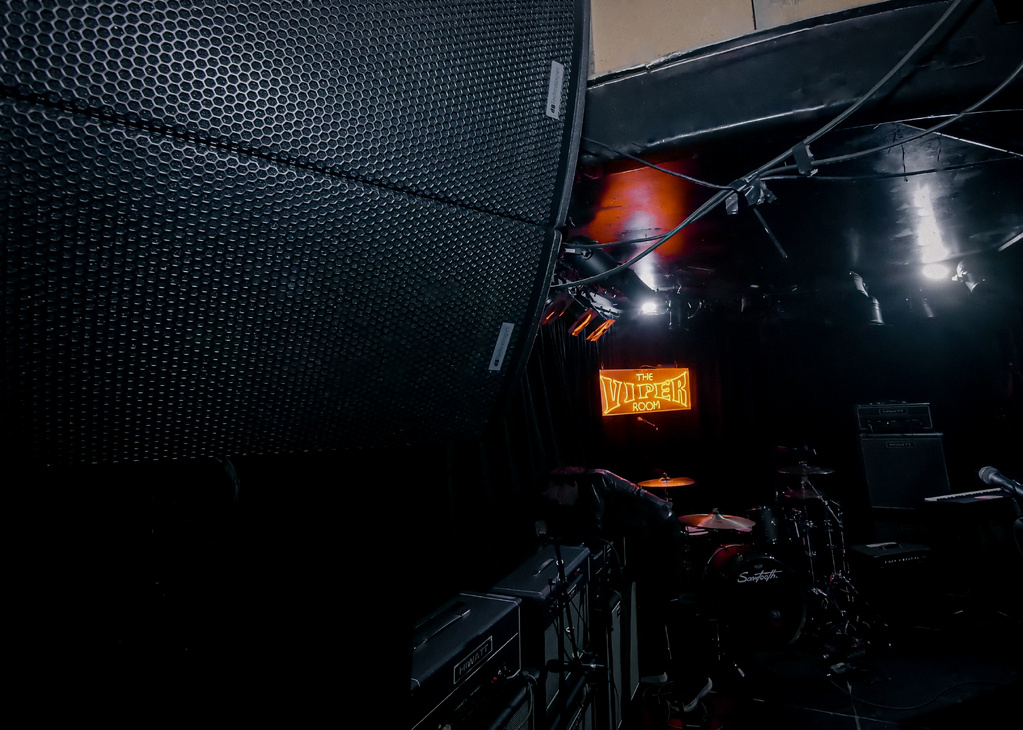When mixing live church praise and worship bands, or any other band for that matter, it’s the seasoned, tasteful and professional musicians that always make the sound tech’s job easy and rewarding.
Their musical talents can enhance the entire worship set and they can make the sound tech’s craft really look good to boot! A capable church musician who plays with feeling, self-awareness and controlled dynamics, not only enhances the worship experience for the entire church but also makes the sound tech’s job far less stressful, and even at times, a pleasurable experience for sure.
On the other hand, a musician without control, feeling, or with limited self awareness can certainly diminish and even harm the overall worship band’s contribution to a church service.
These less experienced musicians may force the sound tech to have to “babysit” and fight to control the player’s “donation” to the cause.
Many times the techs need to over-compress/limit their signals, constantly “ride” their faders through the whole set, or just send them to the back of the mix. Moreover, when managing a busy or inexperienced player, the overall mix can suffer, i.e., taking away the sound tech’s ability to focus on other instruments or vocals impacting the overall sound.
Enter church drummers… God love ‘em. They have wonderful “A” personalities, and are typically high in energy, passion, drive and exuberance. However, that same energy and personality, when channeled through their instrument, can either add a spark and interject life into a song, or blow-up, derail or kill the flow of the music and Spirit in the music set.
Percussion instruments are powerful and the foundation of most songs; they can move a crowd and drive the energy of a service in a positive way or completely tangle up a moment. They’re like TNT – the power can be strategically utilized for good purposes or just used to make a huge mess.
When drumming styles include bombastic eruptions, over the top, complicated drum fills, every snare hit a rim shot, loud bass drum beats during soft passages, or misplaced fills and accents, there can be real tension and distraction “in the house.” Something has to give.
On Any Given Sunday
I remember a time when during the music worship portion of the church service I was attending, all was really going quite well. An energetic song, well inspired lyrics and a great arrangement were all clicking together. The congregation, along with me, seemed to be connecting with the song, the lyrical message, and the Spirit of worship in that moment.
However, all of a sudden, about half way through one of the verses, the drummer cut loose into a fill with what I can only describe as an 8- to 12-count “eruption.” He launched a very busy bass drum and tom spasm that sounded like the grand finale at a 4th of July fireworks show. While he certainly believed he was enhancing the moment, I (and possibly many others in that service), were instantly distracted away from the worship mindset.
The flow of the worship was somewhat derailed, at least for a moment or two. If a professional session drummer contributed a fill like that during a recording session, he or she would probably receive a quick “pack your stuff up – don’t call us, we’ll call you” moment. I love the passion, energy and exuberance of church percussionists, but when their craft is not focused and controlled, the flow of the moment will soon be quenched.
In the same vein, at the end of many church services, there’s typically an altar call where people come forward to pray or reflect upon the sermon they just heard. Most times, the music starts off softly and gracefully for this part of the service. The music is designed to flow in like a misty fog slowly building as people are processing and reflecting.
I can remember a time when I was at the altar feeling moved by the service, deep in prayer or reflection, when all of a sudden, a strong bass drum hit—through a hot open channel into a dual 18-inch sub—went off like a cannon fired out of nowhere. BOOM, BOOM, BOOM… BOOM, BOOM, BOOM… The bubble was popped. Once I regained my composure, I thought, “Wow, where did that come from? Now, where was I? Oops…” I lost the thought or prayer – and just went back to my seat.
Albeit innocent in intent, the drummer did not have the self awareness to play a part that flowed with the moment. Light brush work on a tom may have been a far better way to ease into the song. Again, if this happened in a pro recording studio, a session drummer would have probably been directed to the exit sign. However, in the church, we don’t direct anyone towards the exit sign; we must love, lead, mentor, and develop these important church musicians.
Mentorship 101
As sound tech leaders, we’re ultimately responsible for the audio quality of the service; to that end, we may also need to be proactive and mentor our musicians, both young and old.
The process really is not that difficult—just a little investment in people is required. Start with music directors—they have a lot to be thinking about during the service and may not even be aware of the opportunity for improvement in the percussion section. Offer to help mentor and get their blessing to proceed. Then sponsor a few sessions with your drummers listening to music.
Find some pro recordings where the drums and bass are really tight. Point out that most pro recordings have direct and precise drumming with very limited fills. Discuss with the group what “play like the record” really means. Ask them what, from each recording, they would like to incorporate into their own unique styles.
Help them to develop an appreciation of the “less is more” formula for success. Positive change will come, not overnight, but it will come.
Also, if possible, take them to a few popular Christian artist concerts and have them take notice of the location and the number of fills per song, the tightness between the bass guitar and the drums, and how the drumming energy rises and falls along with the dynamic energy level of the song, and so on.
Reinforce the message of the pros such as: “It’s not the notes you play, it’s the notes you don’t play” (Miles Davis, 1926 – 1991). Help them to understand that the best live drummers out there are those who play the same live as if they were in the studio.
When these concepts are understood and employed by the drummer, you will be amazed how much the quality of the worship band, the worship experience and the mix all improve so dramatically!
Contrary to common logic, when playing clean, simple, and tight drumming in church, it may seem like, nobody “will notice” the drummer, but on the contrary, it won’t be long before everyone starts noticing. These are the drummers that get the call to play at regional events, youth rallies, conferences, and large community outreach events. Ultimately, these are the musicians that get the call when recording projects begin.
In conclusion, we as sound techs wear many hats in our service to the church, but few things are as rewarding as mixing the worship set with quality musicianship, knowing that we had an active role in someone’s growth and development in their craft as we grow and develop in ours.
Oh, by the way, if you know any Nashville session drummers, please invite them to church; we can use all we can get!




















